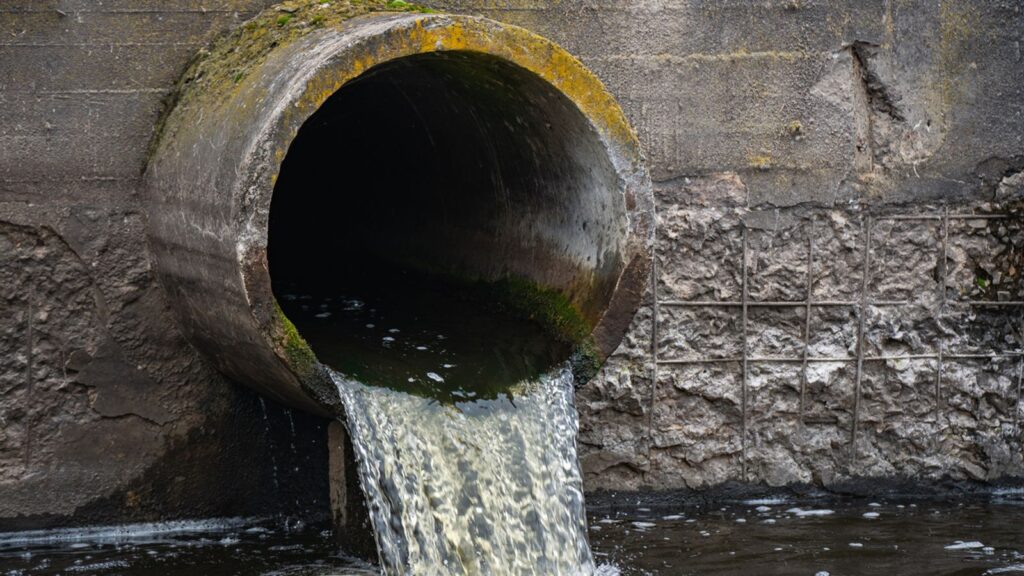The level of sewage being discharged into English rivers continues to be “disgraceful”, despite enhanced monitoring, alleged investments by water companies, and government threats of penalties, as indicated by the most recent data.
Overall, there was a 2.9% reduction in sewage spills last year compared to 2023, according to data collected and analyzed by the Environment Agency from water companies.
Despite this slight improvement in the number of incidents, the duration of spills – the length of time a water treatment facility releases untreated sewage into a river or the ocean – increased by 0.2%.
“This year’s data reveals that we are still far from where we need to be to eliminate unnecessary sewage pollution,” stated Alan Lovell, chair of the Environment Agency.
The EA reported securing £10.2bn from water companies to minimize sewage discharges.
“While these enhancements are in progress, we anticipate water companies to fulfill their responsibilities to guarantee that their existing assets are well-maintained and functioning correctly,” Mr. Lovell emphasized.
‘Harsh Reminder’
The most recent data is unwelcome news, but not entirely surprising, for the government.
“These statistics are disgraceful and serve as a stark reminder of how years of inadequate investment have led to water companies releasing unacceptable levels of sewage into our rivers, lakes, and seas,” stated Environment Secretary Steve Reed.
The government has indicated that part of its £100 billion public infrastructure investment plans will target water pollution.
However, the process of repairing or replacing thousands of miles of aging water pipes and deteriorating water treatment facilities, as well as constructing new ones, is anticipated to take decades.
Additionally, this year saw the introduction of the Water (Special Measures) Act, which the government said it would utilize to take a “tough” stance on water companies.
The legislation permits the prohibition of bonuses for water company executives failing to meet targets and enables the filing of criminal charges against companies violating the law.
Nevertheless, the government may soon face backlash over this issue.
Read more from Sky News:
BAFTA TV Awards nominations revealed
Pair held in probe into vandalism at Trump golf resort
Last week, the environmental watchdog, the Office for Environmental Protection (OEP), announced an investigation into whether proposed cleanup plans from the Department for Environment, Food, and Rural Affairs (DEFRA) breach the law.
The OEP will determine if DEFRA’s plans, implemented by the Environment Agency and water regulator Ofwat, are too general and fail to address the environmental threat of sewage pollution at specific locations.
Notably, England hosts a majority of the world’s chalk stream rivers and streams, which are highly susceptible to sewage pollution.
‘Persistent Issues’
For advocates of clean water, the latest data represents a continuation of ongoing challenges.
“The water industry continues to be flawed,” remarked James Wallace, CEO of River Action.
He added, “The statistics are staggering: over 3.6 million hours of sewage spills from nearly 450,000 discharges.
“This equals 412 consecutive years of sewage polluting our rivers, lakes, and oceans.”
Consumers are frustrated as many will likely face significant bill increases to fund the investments required by Ofwat and the government to achieve pollution targets.
Recently, the government established an independent Water Commission.
Headed by Sir Jon Cunliffe, it is tasked with developing long-term reforms for water company regulation.
Campaigners suggest that the commission should assess the structure and ownership of water companies themselves.
“[It] must put an end to this unsuccessful privatization experiment and push for real industry and regulatory reforms,” Mr. Wallace stated.
“We should learn from our European counterparts and adopt financial and governance models prioritizing people and the environment over investors.”


